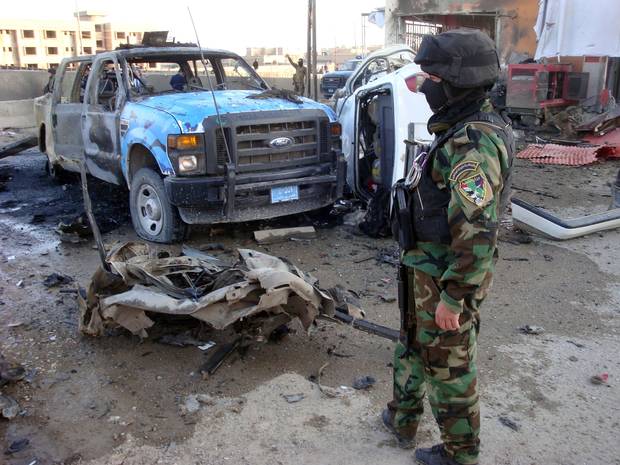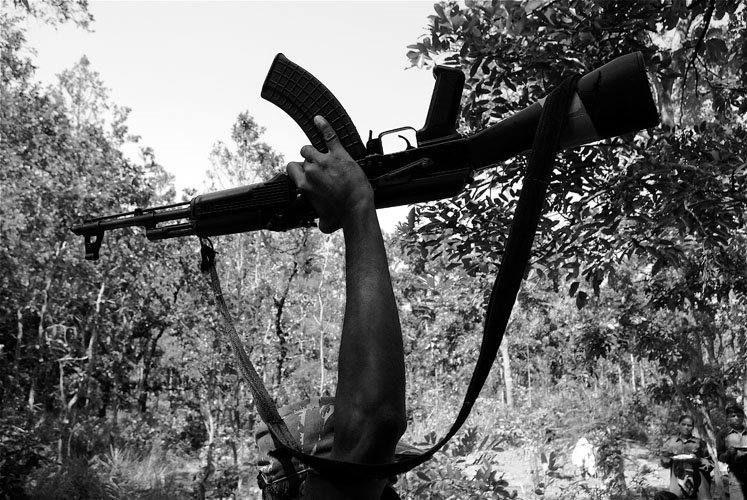NATO’s future in Afghanistan, the civil war in Syria, and negotiations over Iran’s nuclear program have attracted a great deal of Canadian and international attention in 2013. As we look back over the year, it seems each of these matters invites very different predictions. Despite upcoming scheduled talks, the Syrian civil war inspires only the faintest hope of a peaceful solution on the horizon. Conversely, recent developments in the negotiations with Iran offer some good reasons to expect a gradual thaw in relations that has seemed entirely unlikely over the past several years. Finally, in Afghanistan, as has been the case for some time now, the only thing that is assured is an uncertain future. Some countries, including Canada, will soon withdraw as the US begins establishing its long-term role in the country.
While these international security matters have never strayed far from the mind of foreign policymakers and interested observers, some other less prominent events of 2013 are worth mentioning in order to provide a broader and deeper survey of the international security landscape of 2013. While there is no shortage of concerns to address, events in Mali, North Korea, and Iraq are particularly noteworthy.
Less than two weeks into the year, France began a military intervention against Islamist fighters in its former colony. French forces quickly expelled fighters from key strategic cities and a newly bolstered central government was re-established. The intervention failed to receive a great deal of attention in North America, but was aided by a number of countries including Canada, and provoked debate in both Africa and Europe. Defenders of the intervention pointed to the human rights abuses and unpopularity of Islamist forces, as well as the potential security threats that could extend from the collapse of the Malian state. In response, those critical of the opposition argued that the French government was being disingenuous or inconsistent in its rationale for intervention, and unwilling to adequately address the underlying ethnic, political, and economic issues behind Mali’s civil strife. Concerns were also raised that the Mali crisis was “blowback” from the Libya intervention, and might give rise to yet more unintended consequences.
After Mali began to fade from the headlines, North Korea reasserted itself as a thorn in the side of the US. Following UN condemnation of a satellite launch and nuclear test by the DPRK, the Kim Jong-Un government released several provocative online videos that appeared to depict military attacks on American cities. As rhetoric with the United States reached a fever pitch, relations with South Korea predictably deteriorated and the communications hotline between North and South Korea was severed. After a series of international threats and condemnations were exchanged by numerous countries, the tensions subsided and relations returned to a more familiar, albeit still precarious, status. While the DPRK was widely condemned as being unnecessarily belligerent, others suggested that US and South Korean policies prior to and during the crisis should have been more committed to easing the tensions. Recently, the unpredictability of the North Korean government was once again made apparent by the execution of Kim Jong-Un’s high ranking uncle. Some observers suggest that this may portend a heightened degree of instability in the short term, while others caution against drawing any precipitous reactions.
Finally, Iraq has had its worst year since the US withdrew its troops from the country, in terms of fatalities related to civil conflict. The Sunni-Shia divide that fuelled a lengthy and brutal war that stymied US ambitions to create a stable pro-American democracy in the country has never disappeared, but reasserted itself with a startling degree of ferocity this year. The geopolitical implications of the Iraq War have led most observers to conclude it was mostly a failure, and many critics argue it actually made matters much worse in the region. Supporters of the Iraq war– very few of whom would now present an unqualified defense of the campaign – have suggested that it helped inspire a regional push for democracy that has pressured various leaders throughout the region to resign or reform in the face of the so-called Arab Spring. This year marked a decade since the initial US invasion, and current trends seem to indicate the consequences of this US-led campaign have yet to be fully realized.
These three sometimes overlooked security issues should serve as a reminder of the breadth of the international security spectrum. It is common for media observers, commentators, and audiences in North America to concentrate on the most enduring, intense, and militarily relevant issues. Most often these issues are geographically centred in the middle-east and Central Asia. This tendency is understandable, but it is important to recognize the wide spectrum of security issues and the need for creative solutions.
Earlier this year, as the US, UK, and others looked set to embark on another military campaign in Syria. Western voters campaigned in large numbers to adamantly oppose such a course of action and eventually dissuaded policymakers. There will, no doubt, be continued debate about whether this was the correct course of action, but once people were confronted with the crisis it became clear that they wanted a different course to be pursued.
This is the type of public engagement that can hopefully encourage policymakers to adopt innovative solutions to urgent and persistent problems. Criticisms of foreign policies should be taken seriously, and, in the case of major issues like the campaign in Afghanistan or the civil war in Syria, they often are. But less prominent matters, which attract media attention only when events unfold at a feverish pace, are often presented without sufficient nuance, context, or debate. Ultimately, it is incumbent upon interested audiences to seek out a variety of perspectives, but engaged audiences should also encourage a broadening and diversification of the public discourse on international security.





